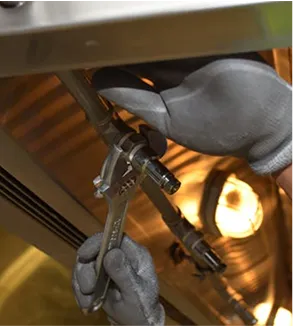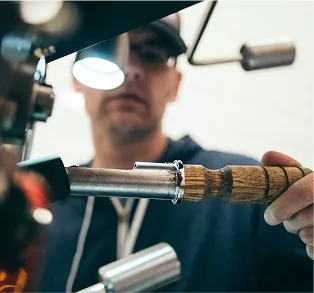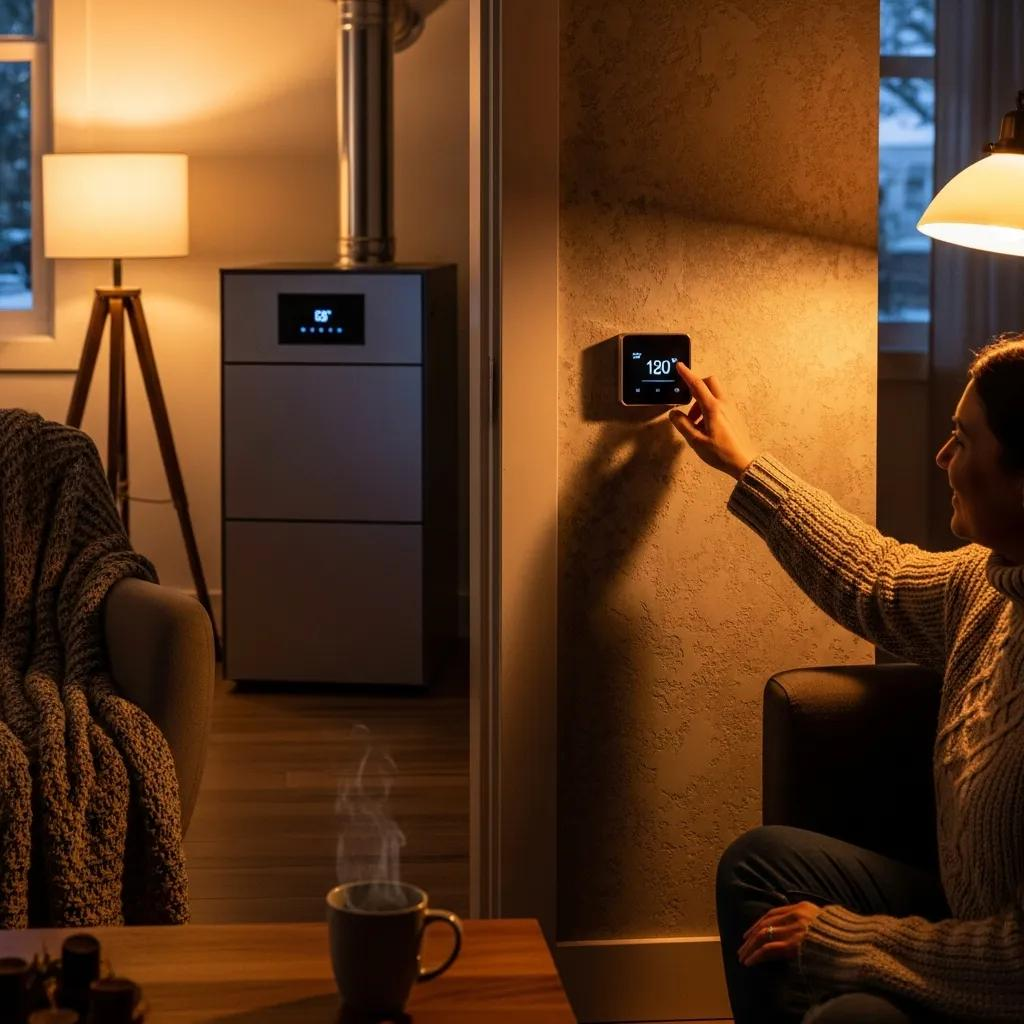
When a heat pump starts forming ice along its refrigerant lines, it’s usually a sign that something isn’t working correctly. This issue can sneak up on homeowners in Buford as the weather shifts back and forth during early summer. While a little frost on rare cold mornings might not raise alarms, a persistent freeze is not normal and can signal system strain, which may drive up energy bills or lead to a complete breakdown.
Heat pump refrigerant line freezing is more than just an inconvenience. It is a condition that keeps your system from running efficiently. If freezing continues unchecked, parts of the heat pump can become damaged, and the unit might stop cooling your home altogether. Knowing why this happens and what signs to look for gives you a better chance of taking action before costly repairs are needed.
Common Causes of Refrigerant Line Freezing
Several things can cause your heat pump's refrigerant lines to freeze, even during the warmer months in Buford. These issues interrupt the normal flow of refrigerant or airflow, two things your unit depends on to keep your home comfortable and your system running smoothly.
Here are the most frequent culprits behind refrigerant line freezing:
1. Low refrigerant levels
Heat pumps rely on the refrigerant to absorb and transfer heat. When levels drop, usually due to a leak, the pressure inside the system can fall too low. This causes the refrigerant to get much colder than it should, which leads to ice forming on the lines.
2. Dirty air filters
When filters remain unchanged for weeks or months, they get clogged with dust, pet hair, and other materials pulled from the air. This slows down indoor airflow to the point that it can impact coil performance. With less warm air passing over the evaporator coil, freezing becomes more likely.
3. Blocked or closed air vents
Sometimes homeowners close off vents in unused rooms to save energy. While that seems like a smart move, it can actually lead to pressure imbalance inside the system. That restricts airflow and adds stress to the refrigerant circuit, creating conditions where freezing is more likely.
4. Faulty fan or blower motor
If the indoor blower motor fails or slows down, the heat pump will struggle to circulate air. Without sufficient airflow, even a properly charged system can start to freeze up, particularly on humid days.
5. Problems with the thermostat
When the thermostat is not calibrated correctly or malfunctions, the system may continue cooling longer than needed. Extended run times under low load can cause parts of the unit to become too cold, tipping the balance and triggering frost or ice buildup.
To give one example, a homeowner in Buford noticed their system wasn’t cooling effectively, and upon closer inspection, found the outdoor line coated in frost. Once a technician arrived, they identified that a worn-out blower motor was to blame, limiting airflow and causing the issue to spiral.
The bottom line is that freezing usually happens when airflow drops or pressure in the system falls out of range. Checking and fixing these problems early can keep the rest of your heat pump from wearing out too soon.
Key Signs Your Refrigerant Line Is Freezing
Catching the freezing early is important. Waiting too long to act can put the whole system under strain and interrupt cooling when you need it most. Whether you are running the heat pump during an early summer warm spell or during overnight cycles, knowing what signs to watch for gives you a head start.
Homeowners should look for:
- Frost or ice buildup on the outdoor refrigerant lines or near the indoor coil
- Weak or reduced airflow through supply vents
- Longer-than-usual system cycles or constant running without shutting off
- A spike in energy usage without adjusting your thermostat
- Uneven or inconsistent temperatures throughout the house
- Clicking, humming, or buzzing sounds from the unit
Any one of these signs on its own should be enough to warrant taking a closer look. When several happen at once, the system may already be dealing with restricted airflow or pressure issues. In these cases, getting professional help is the safest next step to prevent larger damage to both indoor and outdoor unit components.
If the system continues to run while partially frozen, it will not cool the home properly, and it could wear out the compressor. That can turn a minor repair into a much bigger system issue. Understanding these signs helps homeowners in Buford know when to take action and minimize potential downtime.
Preventive Measures to Avoid Refrigerant Line Freezing
Once homeowners in Buford spot early signs of freezing, the next step is preventing it from happening again. A heat pump that runs at full capacity without airflow issues or low refrigerant will stay clear of ice, even during muggy summer mornings. Keeping the lines frost-free starts with giving the entire system regular attention.
Here are a few practical steps homeowners can take to reduce the risk of freezing issues:
- Schedule seasonal inspections. Having our professionals inspect your system before peak summer can reveal worn parts, leaks, or airflow problems that often lead to freezing.
- Replace filters on time. Aim to change air filters every 1 to 3 months, depending on how much the system runs and whether there are pets or heavy dust in the home.
- Keep vents open and unblocked. Leave all supply and return vents open. Closing them may reduce system performance and cause pressure imbalances.
- Avoid setting the thermostat too low. Let your system cycle off fully during normal operation. Pressing the temperature lower than necessary can force extended run times and invite freezing.
- Listen for changes. Rattling, cycling, or airflow drop-offs usually mean a component is not working properly or something is restricted.
Preventing freezing is all about maintaining steady airflow and keeping the refrigerant cycle balanced. Waiting to act until ice forms puts unnecessary stress on the heat pump. By sticking to small maintenance habits, Buford homeowners can avoid larger problems down the line.
When to Seek Professional Heat Pump Service in Buford
Some issues, like an overdue filter or blocked vent, are quick to identify. But others, such as refrigerant loss or electrical faults, require deeper skills and access to specialized tools. If ice or poor airflow happens more than once, that is a sign it is time for heat pump service in Buford.
Here is when it makes sense to bring in our technicians:
- If ice keeps showing up despite filter changes and open vents
- If your system blows warm air or cools poorly during normal operation
- If you notice hissing or bubbling sounds around refrigerant lines
- If the outdoor unit has frozen solid or stopped running altogether
- If airflow drops off even though your thermostat is set correctly
Our professionals use gauges to check refrigerant pressure and tools that detect weak motors or leaky coils. With the right experience and equipment, small component issues can be fixed before they cause compressor shutdown or full system failure.
Waiting too long increases both the likelihood and expense of a major repair. Whether the issue is electrical, mechanical, or refrigerant-based, resolving it early helps extend the life of the system and keeps your home comfortable throughout the season.
Keeping Your Heat Pump Efficient Year-Round
Heat pumps are built to be dependable, but like any machine, they need upkeep. In Buford, where summers can be sticky and unpredictable, a properly working system makes the difference between a cool, comfortable home and one that struggles. Beyond addressing freezing issues, routine service keeps energy use in check and reduces emergency breakdowns during peak use.
Taking a proactive approach starts with regular maintenance appointments and ends with catching small changes before they grow into bigger ones. It is easier to stay ahead of problems when the system is performing at its best. A good routine includes filter changes, keeping vents clear, checking thermostat accuracy, and listening when something sounds off.
Heat pump refrigerant line freezing is preventable and treatable. Keeping airflow steady and addressing pressure changes early helps your unit run smoothly all summer long. If something does not feel right or ice keeps forming, do not wait for complete system failure. Get help from professionals who understand these systems inside and out. Preventing a major repair often starts with spotting something small and responding to it on time.
If you notice any irregularities in your unit's performance, Southeast Heating and Cooling encourages you to schedule a maintenance check or inspection to ensure everything is operating safely and efficiently. Our technicians are ready to assist with professional heat pump service in Buford. For a quick estimate or to book a service visit, please contact us today.
Related Blogs
Customer Testimonials


Financing


Latest Blogs

Ultimate Guide to Home Heating Solutions & Systems

Why Proactive HVAC Maintenance Saves You Money & Headaches

Troubleshooting Common Furnace Issues










